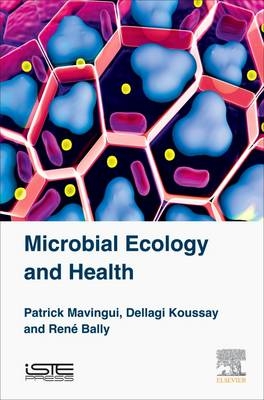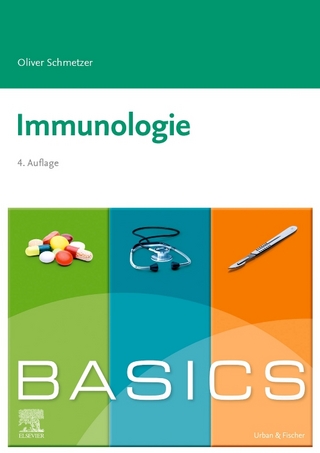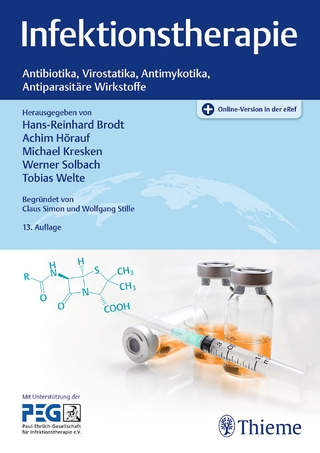
Microbial Ecology and Health
ISTE Press Ltd - Elsevier Inc (Verlag)
978-1-78548-095-9 (ISBN)
- Titel wird leider nicht erscheinen
- Artikel merken
Nowadays, microbial ecology is using the principles of these peaceful relationships between microbiota and hosts to help prevent and control infectious diseases. The authors put forward a holistic view of infectious diseases through the integration of ecological processes and the determining factors of human, animal, or plant hosts. The bringing together of microbial ecology and health is undoubtedly becoming a solution to control current and future diseases that are now the leading cause of death worldwide.
In 2002, Patrick Mavingui was appointed as a permenant researcher of microbial ecology at CNRS CR1, Lyon, France. His research includes 1)Molecular genetics and of bacteria interacting with eukaryotic hosts, symbioses, genome dynamics, mechanisms of cellular and molecular communication, differential gene expression, molecular microbial ecology and characterization of bacterial effectors and host targets, using biochemical, immunological, genetic and fluorescence spectroscopy techniques. Koussay Dellagi has been professor of medicine since 1992 and Director of CRVOI since 2007. He has obtained his MD degree in Paris and completed his internship at Hopitaux de Paris (1973-1978) where he specialized in clinical hematology and immunology. Assistant professor in immunology at Universite Paris 7 (1978-1985), he conducted at the same time his research activity at INSERM U108, Hopital saint Louis, Paris. He joined the teaching and medical staff of Faculty of Medicine in Tunis in 2005, successively as assistant professor in hematology (1985), associate professor (1987) and full professor (1992). He was director of Institut Pasteur in Tunis from 1988 to 2005 and head of the Research laboratory of immunopathology, vaccinology and molecular genetics at the same Institute (International laboratory associated to CNRS, WHO Collaborative centre for training and research in Leishmaniasis). He is currently member of the scientific board of RUN-Univ, and has served as member of the Advisory Committee of the WHO Centre for Health Development (ACWKC) in Kobe, Japan ; and member of the WHO EMRO Regional Consultative Committee. He has been Chairman (2001-2005) of the Steering Committee of the Euro-Mediterranean Public Health Information System (EMPHIS), EUMEDIS EU Programme. He was member and Rapporteur of the International Committee of Bioethics of UNESCO, Paris (1993-1995). He served as member of the Steering Committee on Leishmaniasis of TDR (1990-1992), and then member of the Scientific and Technical Advisory Committee (STAC) of TDR (WHO/WORLD BANK/UNDP), Geneva, Switzerland (2000-2003). Bally Rene serves as Research director and Scientific consultant for AKINAO. Rene has scientific expertise in all development projects on microorganisms. From 1990 to 2013 he was appointed Director of research at CNRS, Director of Research Programs and training for the development of Southern countries from 2011 to 2013; Deputy Scientific Director of the Institute of the CNRS Ecology and Environment from 2009 to 2011, in charge of Biodiversity, Ecology of health and the ultra-marine, 2006-2009 and Deputy Scientific Director at the Department of Sciences Life and Environment and Sustainability department of CNRS. From 2003 to 2011, he was appointed Director of the Mixed Unit for Microbial Ecology Research (UMR 5557 CNRS-INRA-Universite Lyon 1-National Veterinary School of Lyon), specializing in the study of microbial ecosystems and their role in interactions micro-plants. And from 1999 to 2003, appointed Director of the federative research institute Sciences and methods of ecology and evolution (IFR 41) Lyon1 University. He has participated in various programs steering committees and authored over 120 scientific articles and more than 100 papers at scientific conferences or in France and abroad.
1. Foundations and concepts in microbial ecology 2. Microbial ecology for understanding the risk of infection 3. Wildlife, the first supplier of infectious agents 4. Microbial ecology and infectious disease vectors 5. Microbial ecology and the emergence of infections 6. Contributions of genomics to microbial ecology and health 7. Microbial ecology and anti-infection strategies 8. Conclusion
| Erscheinungsdatum | 16.08.2017 |
|---|---|
| Sprache | englisch |
| Maße | 152 x 229 mm |
| Themenwelt | Medizin / Pharmazie ► Medizinische Fachgebiete ► Arbeits- / Sozial- / Umweltmedizin |
| Studium ► Querschnittsbereiche ► Infektiologie / Immunologie | |
| Naturwissenschaften ► Biologie ► Mikrobiologie / Immunologie | |
| Naturwissenschaften ► Biologie ► Ökologie / Naturschutz | |
| Naturwissenschaften ► Biologie ► Zoologie | |
| ISBN-10 | 1-78548-095-2 / 1785480952 |
| ISBN-13 | 978-1-78548-095-9 / 9781785480959 |
| Zustand | Neuware |
| Haben Sie eine Frage zum Produkt? |
aus dem Bereich


